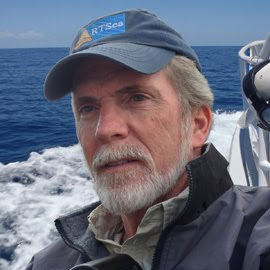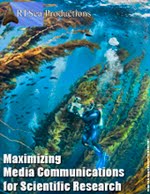 As a contrasting followup to yesterday's posting on EarthEcho International, it was reported in the Australian media that the Steve Irwin, the vessel currently used by the Sea Shepherd organization to harass Japanese whaling ships, was boarded by Australian police when it docked at Hobart, Tasmania yesterday. The police confiscated the log book, all video footage and photographs, various documents and the crew was confined to the ship. The footage was to be used for episodes of Animal Planet's Whale Wars series which has been documenting the eco-terrorist activities of Sea Shepherd.
As a contrasting followup to yesterday's posting on EarthEcho International, it was reported in the Australian media that the Steve Irwin, the vessel currently used by the Sea Shepherd organization to harass Japanese whaling ships, was boarded by Australian police when it docked at Hobart, Tasmania yesterday. The police confiscated the log book, all video footage and photographs, various documents and the crew was confined to the ship. The footage was to be used for episodes of Animal Planet's Whale Wars series which has been documenting the eco-terrorist activities of Sea Shepherd.Sea Shepherd's actions - ranging from positioning the ship in the path of the whalers to throwing rancid butter at exposed whale meat to accusations of ramming ships and endangering lives - represents one extreme end of the conservationist spectrum and one that many conservationists question as to its ultimate effectiveness. I'm sure that many of Sea Shepherd's members are sincere in their positions and probably feel that their actions are the only option available to them. But to many, it is questionable as to whether extreme protests - as seen with timber eco-terrorists planting metal spikes in trees (which injure or kill the lumberjacks when their saws hit the spikes), or spraying graffiti on SUVs, or even the bombing of an abortion clinic - actually accomplish anything substantial in addressing the issue at hand.
Those organizations that operate at the far end of the conservation spectrum are viewed as terrorists and criminals by government and international regulatory agencies; are largely ignored by other mainstream conservation groups who hold their opinions in reserve, knowing that the fringe groups typically self-destruct from their own theatrics; and are seen as publicity stunt-seeking whackos by the general public.
In the end, the real progress that is made in ocean conservation comes from scientific research and data and political diplomacy which garners broad public acceptance and motivates the decision-makers to act. It may be painfully and frustratingly slow, but it's how the ball gets moved down field.
Read article from Australia's The Mercury.com.

















No comments:
Post a Comment